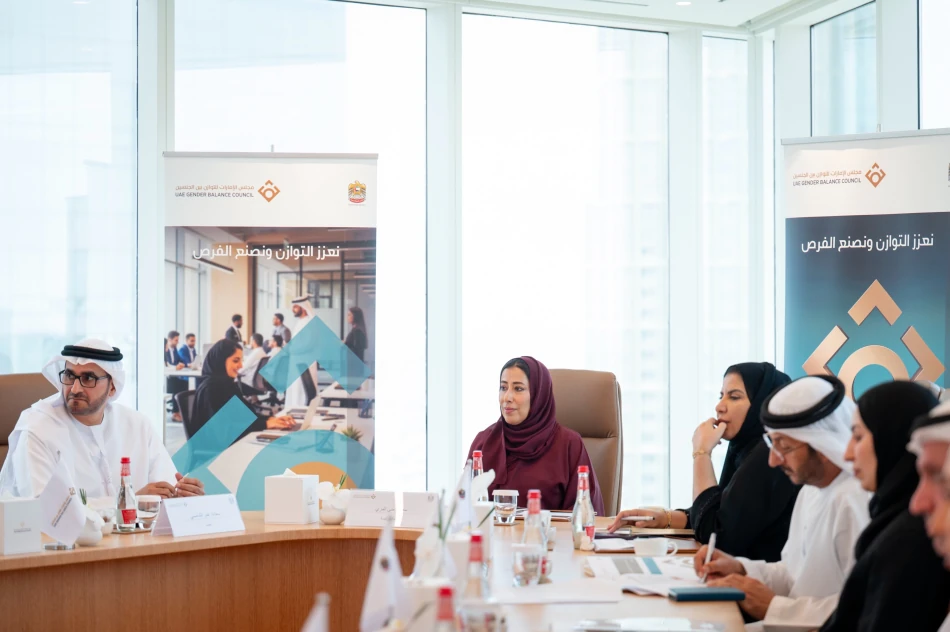
UAE Gender Balance Council Convenes Inaugural Meeting with New Membership
UAE Restructures Gender Balance Council with Expanded Powers to Drive Global Competitiveness
The UAE has launched an ambitious restructuring of its Gender Balance Council, expanding its mandate and strategic influence as part of a broader push to strengthen the nation's position in global gender equality rankings. The newly configured council, operating under enhanced governance frameworks, signals the Emirates' commitment to leveraging gender balance as a competitive economic advantage in both public and private sectors.
Strategic Expansion Beyond Traditional Boundaries
The Cabinet's recent decision to reorganize the council represents more than administrative reshuffling—it reflects a strategic pivot toward viewing gender balance as integral to national competitiveness. Under the leadership of Her Highness Sheikha Manal bint Mohammed bin Rashid Al Maktoum, the council now operates with broader legislative and regulatory development powers.
"This represents a new beginning of diligent work in light of expanding the scope of our operations and strategic roles," Sheikha Manal stated during the council's inaugural meeting under its new structure. The emphasis on "radical change" suggests the UAE is positioning itself to move beyond incremental progress toward transformative gender balance initiatives.
Enhanced Governance Architecture
The restructured council brings together representatives from key federal entities, including the Ministries of Finance, Economy, and Foreign Affairs, alongside specialized agencies like the Federal Authority for Government Human Resources and the Federal Competitiveness and Statistics Centre. This cross-sectoral composition enables coordinated policy development across government departments.
The new governance model emphasizes evidence-based reporting through improved data collection and measurement tools, addressing a critical gap that has historically limited the effectiveness of gender balance initiatives in the region.
Regional Leadership Ambitions
The UAE's approach contrasts sharply with regional peers who have focused primarily on symbolic gestures rather than systematic policy integration. While Saudi Arabia has made headlines with high-profile reforms like allowing women to drive and attend sporting events, the UAE's strategy centers on embedding gender balance into economic competitiveness metrics.
This positions the Emirates alongside global leaders like Iceland, Norway, and Singapore, which have successfully leveraged gender equality as an economic multiplier. The council's mandate to influence both public and private sectors mirrors successful models in these countries, where government policy creates market incentives for gender-balanced practices.
Market Implications and Investment Appeal
For international investors and multinational corporations, the UAE's systematic approach to gender balance offers practical advantages. Companies operating in the Emirates can leverage the supportive regulatory environment to meet global ESG (Environmental, Social, and Governance) requirements more effectively.
The council's focus on developing comprehensive legislation and policies creates predictable frameworks for businesses, reducing compliance uncertainty and enabling long-term strategic planning around diversity initiatives.
Global Competitiveness Strategy
Deputy Chairwoman Mona Ghanem Al Marri emphasized that the restructuring establishes "the foundation for a new phase" focused on maintaining the UAE's position "at the forefront of global efforts to achieve gender balance." This language suggests the Emirates views gender equality not as a social obligation but as a competitive differentiator.
The council's enhanced international partnership focus indicates plans to influence global gender balance discourse, potentially positioning Dubai and Abu Dhabi as regional hubs for gender equality expertise and best practices.
Measuring Success Through Global Rankings
The emphasis on improving performance in international indices reflects the UAE's data-driven approach to policy development. Unlike many regional initiatives that lack measurable outcomes, the restructured council prioritizes evidence-based assessment of its impact.
Secretary-General Moza Mohammed Al Ghuwaiss Al Suwaidi highlighted that the updated governance framework provides "the necessary tools to continue succeeding and achieving more tangible results," suggesting confidence in the council's ability to deliver measurable improvements in global gender balance rankings.
Economic Integration Model
The council's mandate to work across both government and private sectors represents a sophisticated understanding of how gender balance initiatives succeed. By creating alignment between public policy and private sector incentives, the UAE is building a sustainable ecosystem rather than relying solely on government mandates.
This integrated approach addresses a common failure point in gender equality initiatives, where government policies lack private sector buy-in or vice versa. The UAE's model creates mutual reinforcement between public and private efforts, potentially delivering more durable results than top-down approaches used elsewhere in the region.
Most Viewed News

 Sara Khaled
Sara Khaled






